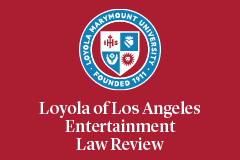Abstract
The reporter’s privilege, also known as the reporter’s shield law, exists to protect reporters from forced disclosure regarding confidential information and sources. Stemming from the First Amendment right to freedom of press, this privilege seeks to safeguard the free flow of information. However, reporters are frequently participating in media ride-alongs during which they are permitted to accompany police officers in their daily duties. As a result of these ride-alongs, reporters witness arrests, search warrant executions, and crime scene investigations. When subsequently subpoenaed to testify during the criminal trial related to those events, these reporters assert their privilege and refuse to testify. Often times, courts uphold their privilege. However, in doing so, it infringes upon the criminal defendant’s Sixth Amendment right to a fair trial. An exception to the reporter’s privilege should be implemented when a reporter participates in a media ride-along since testifying to their eyewitness accounts would not violate the purpose of the privilege. Mandating that the reporters testify would not disrupt the free flow of information nor would it require disclosure of confidential information. Instead, such an exception would only require reporters to testify to information witnessed as the result of the police-permitted ride-along. Moreover, the Sixth Amendment right to a fair trial trumps the First Amendment right to freedom of press in this context, further supporting the exception to the reporter’s privilege.
Recommended Citation
Dina Hovsepian,
Quid Pro Quo: Piercing the Reporter’s Privilege for Media Who Ride Along,
32 Loy. L.A. Ent. L. Rev. 335
(2012).
Available at: https://digitalcommons.lmu.edu/elr/vol32/iss3/3


